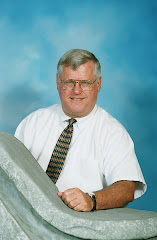
Tonight I watched the writers' commentary on the movie "Night at the Museum." I was curious to see what the writers had to say about the process of taking a very short children's book and turning it into a full length feature. I didn't learn much about their writing process, but their commentary did raise another thought.
At one point, the writers start a running gag about how antiquities, which are obviously of some value, get into American museums, or any museum outside the country of origin. I suppose we would like to think that there is some sort of gentlemanly deference among international scholars that says "Oh, you take it - more people will appreciate it there." But why should Egypt yield its treasures from the tombs, or Mexico their Mayan artifacts, or Peru their Incan remnants? The writers just bluntly said, "I expect we stole them." Then, poking fun at their own idea, they start joking about our sending lots of money from the sale of the museum tickets back to the conutries of origin for further exploration and research.
But I had never asked that very question before, and I think it's a good one. In classical Christian schools, we say that one of our goals to to train students to be good "crap detectors." The main point we make is that we should question assumptions.
By the way, other than this insight, I didn't find the writers' dialogue very intelligent, and I don't recommend wasting your time viewing it (I stopped it halfway through the commentary). And I became increasingly irritated about other museum "assumptions" that I had already questioned long ago. The scene with the cave men is a great example, since there is no objectively indisputable support for such a period in human history. See the first chapter of G.K. Chesterton's Everlasting Man for a good discussion of this.
But don't forget...(and it is so simple):
Ask questions.


No comments:
Post a Comment